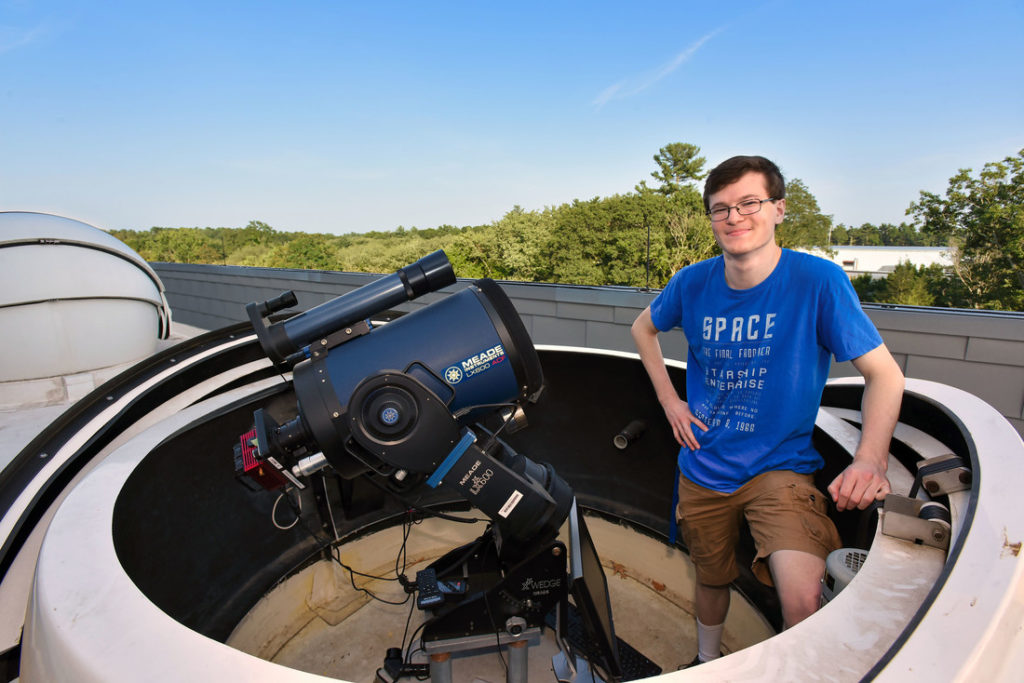Automating the observatory
Johnathan Prideaux ’20 spends summer working on upgrade to Wheaton astronomy equipment
Internship: Research assistant to Assistant Professor of Physics and Astronomy Dipankar Maitra, Wheaton College
Supported by: Merit Scholarship
Majors: Computer science, physics
Hometown: Danvers, Mass.
Picking a project: “I asked Professor Maitra if I could work with him over the summer, and he provided a few project ideas and I chose the one that most interested me. My responsibilities for this internship are to construct, code and develop a system that will automate our [the Wheaton College] observatory. With this automation any student from anywhere on Wheaton’s network can connect to a dome and safely operate the telescope inside to observe the night sky.”
Weather delays: “Getting the weather to cooperate has been the biggest challenge. Throughout this project the weather has been the biggest roadblock. It prevents us from being able to test the newest bits of code or newest piece of hardware. It puts pressure to get the work done in time for testing to be possible.”
Taking a break: “I learned that sometimes a clear head is needed in order to solve a problem. Coding is tricky sometimes and can be very frustrating; if one little thing is wrong it will not work. I need to realize when I need to step away from the code. Once I stepped away for some time, I would come back and almost immediately see the issue and be able to fix it.”
Cracking the code: “My career goal is to code for space in some capacity—whether this be to write the code that runs a spaceship, allows for communication between ground control and satellites or runs a scientific instrument on a lander. Just to be able to help expand our understand of the final frontier and get us closer to being able to travel in space like we travel the oceans or the sky. The end goal is to work for NASA or SpaceX.”
Real-world applications: “This internship has built the very beginning foundations for my understanding of how coding and hardware interact. In classes for computer science it is mainly just the coding and software end, whereas real life takes coding and applies it to real things, the hardware. This ability to see my code have an effect in the real world is amazing and has opened my eyes to a new world of possibility.”
Johnathan Prideaux ’20 is co-president and treasurer of the Physics and Astronomy Club. Last summer, he interned with Assistant Professor of Physics Jason Goodman, conducting NASA-supported research on the oceans of Jupiter’s moon Europa and the effects they have on the moon’s ice sheets. (Photo by Keith Nordstrom)

